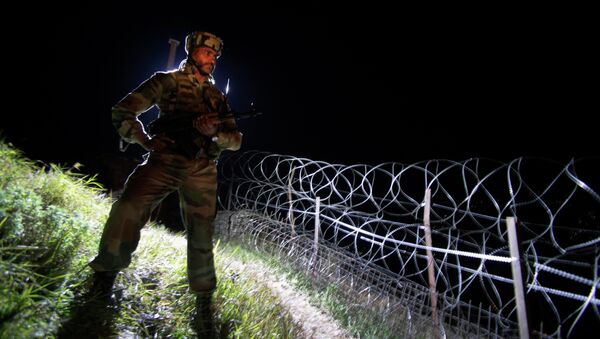New Delhi (Sputnik): Under Narendra Modi's leadership, we will see a remarkable improvement in Kashmir Valley and the entire state within the first year of his second stint as prime minister, says Dr Nihar Ranjan Das, an international affairs expert specialising on South Asia. It may be noted that Jammu and Kashmir was placed under central government's administration in 2018 after the governing PDP-BJP coalition government fell apart.
In an interview with Dr Das, Sputnik discussed the current state of affairs in Kashmir and sought his views regarding how the situation could be improved.
Sputnik: Considering today's situation in Jammu and Kashmir as the base line, where do you foresee the conflict situation in the state as the BJP led government is certain to come to power?
Dr Das: I have very high hopes that the conflict situation in Kashmir will improve towards the better in the coming days.
Sputnik: The repeal of Article 370 of the Indian Constitution that grants autonomy to the state of Jammu and Kashmir has been one of the poll planks for the BJP. Do you think the time has come for this to fructify?
Dr Das: This Article has been in the BJP's manifesto right from its earliest days. It even predates the party during the erstwhile Jan Sangh days. Up to now, there were political compulsions in repealing this article. Even this time, the allies that form part of the National Democratic Alliance (NDA) with the BJP would have constituents that would not agree to the repealing of this article. We may still have to wait for some more time on this.
But having said that, the incoming government will have to focus on engaging the local Kashmiri population and assimilate them into the Indian mainstream. This was something that was initiated by former BJP Prime Minister Atal Bihari Vajpayee.
Sputnik: What about repealing Article 35A, which defines the permanent residents in the state of Jammu and Kashmir?
Dr Das: A matter related to Article 35A is under the Supreme Court's consideration. It would be premature for me to comment on this.
Sputnik: Is it now time for the government to consider the plight of Kashmiri Pandits and ensure that they have safe passage back to their homeland? Should they now be provided rehabilitation and safety in Kashmir?
Dr Das: The issue of Kashmiri Pandits has been a long standing one right from 1980s. The government needs to get all stakeholders involved and sort out the matter. One possibility is to take into confidence the local leaders in Kashmir.
I am sure the local Kashmiri leadership, once on board, would help solve the Kashmiri Pandits' rehabilitation and security problem.
Sputnik: What do you think the government must do to tackle the growing local support for militancy?
Dr Das: Militancy support among the local population should also be tackled through getting the local Kashmiri leadership and community elders involved. It is not a very difficult problem to solve. I expect local state-level elections to take place in Jammu and Kashmir soon.
The views and opinions expressed in this article are those of the speaker and do not necessarily reflect Sputnik's position.

